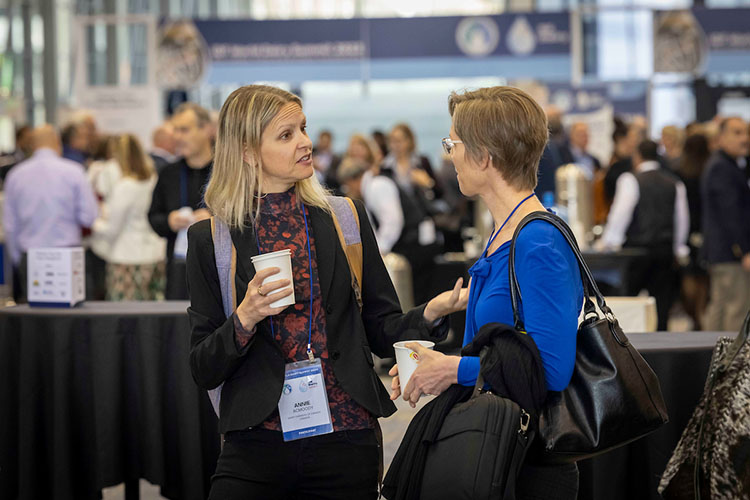
As more than 1,200 attendees from 55 countries from all corners of the globe convened in Chicago for last week’s World Dairy Summit, it was clear that what makes our industry so powerful are the people involved. From farmers to processors to promoters and more, it takes talented, dedicated, innovative individuals to get nature’s most nearly perfect food into the hands of those who want it.
To meet the needs of dairy production, processing, handling, and marketing, we need people from all backgrounds and levels of experience, said Michael Dykes during a Summit session. “We need to be focused on building the workforce of tomorrow,” stated the president and CEO of the International Dairy Foods Association (IDFA). “Our industry needs every one of us.”
One part of the work IDFA is doing to develop a workforce that includes diverse perspectives is helping make sure women have their voices heard and can access opportunities to advance in their dairy careers.
Dykes cited a survey IDFA did in March of 168 individuals from their member organizations that showed there is work to be done in this area:
- 64% of people with less than five years of experience in the industry believed gender will make it harder to advance in a career
- 61% said gender played a role in them missing out on a raise or promotion
- 48% believed women have fewer opportunities to progress
Sharing the stage with Dykes, Illinois dairy farmer Lorilee Schultz further explained that women make up about a third of dairy farm labor in this country, a number that has been rising. Across many land-grant universities, more young women are studying agriculture than young men.
Yet just 4.1% of dairies in the U.S. have a female principal operator. A 2019 survey by the American Farm Bureau Federation found that a majority of women believe they have the skills to be a leader but not the opportunities. Among the 25 cooperatives that are members of the National Milk Producers Federation (NMPF), just 8% of board members are women, Schultz continued. Two-thirds of those co-ops have either zero or one woman on their board.
When women have a seat at the decision-making table, that new perspective gives all members a voice, provides deeper insights, and can lead to better relationships with consumers, described Schultz, who serves as chair of the NMPF Young Cooperators Program. Dykes added, “You don’t know what you don’t know if you don’t have those different perspectives at the table.”
Leadership roles are not the only form of opportunity. For many women around the world, simply owning cows and being able to provide for their family is a type of freedom they may not have had before.
Margaret Munene also spoke during the panel about how she began with one cow and grew her herd to sell milk to her neighbors in Kenya. The business expanded to what it is today: A place for 500 smallholder, mostly female, dairy farmers to sell their milk and receive a fair price. Munene described that they can process 10,000 liters of milk a year and provide education for their farmers in areas like milk quality, artificial insemination, and business. Many of her farmers have opened a bank account for the first time because of their dairy business — much of Kenyan culture is for a husband to control the family’s money, not to mention the land.
Being able to sell milk has made a great change in her community’s livelihood, said Munene. “It has brought empowerment not only for the women but for the whole family,” she explained, noting how dairy farming helps women feed their children and send them to school. They may even employ other people to help care for the cows.
A strong global dairy sector will rely on women such as Munene, Schultz, and so many others like the ones highlighted in the International Dairy Federation’s Women in Dairy Report. It will also rely on men to support and mentor women, Dykes said. IDFA is continuing its work in researching gender in the industry with a survey anyone can take here. The organization is also hosting its first Women’s Summit in Washington, D.C., March 18 to 20, 2024, to engage dairy women in legislative visits, leadership, and more.
It is not a simple or overnight change, but engaging more women and other people of diverse perspectives is what dairy will need to carry it into the future. Those folks are often prepared and willing to be a part of the solution; they just need opportunities to make a difference.
To comment, email your remarks to intel@hoards.com.
(c) Hoard's Dairyman Intel 2023
October 26, 2023








